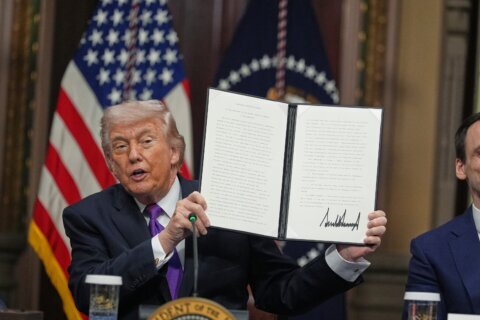WASHINGTON — Concerns about the money relationship between a local performing arts venue and the National Park Service are being raised in an Inspector General’s report.
According to the findings of a Department of the Interior-Inspector General’s report, The Wolf Trap Foundation, which was established about 50 years ago, still receives federal dollars, though it now seems to generate enough money to support itself.
A NPS response to this report concurs with that finding, but also notes the federal money the foundation receives is part of a cultural affairs program that is funded by Congress.
While the Inspector General’s reply acknowledges the Park Service has little control over funds Congress directs, it insists the foundation is not considered self-supporting while receiving federal money.
The Inspector General’s reply also says in order to fully implement its first recommendation, NPS has to tell Congress in its yearly budget justifications that the foundation supports itself and doesn’t need federal funding.
The report also questions why the Secretary of the Interior gets eight free tickets for each performance at Wolf Trap. It’s a practice that, according to the report, has been in place “since at least the late 1970s.”
“According to the NPS’ history of the park, the Inspector General concluded in 1979 that the Department would be better served by strictly prohibiting free tickets for employees and recommended that the agreement be revised to forbid free or discounted tickets to Department personnel. Despite the recommendation, the agreement renewed at the time stated that the Foundation would give the NPS eight free tickets for each Park performance,” the report said.
In its response to the draft report, NPS stated its plans to have an ethics officer review that practice.
These concerns and four additional recommendations are being raised in this report as the Foundation and the Park Service work out a new cooperative agreement. The current 20-year agreement ends on Oct. 1.
The Inspector General’s memo says four of the six recommendations are resolved but still need to be implemented. The other two are neither resolved nor implemented, but all recommendations will be tracked by the Interior Department’s Office of Policy, Management and Budget.







